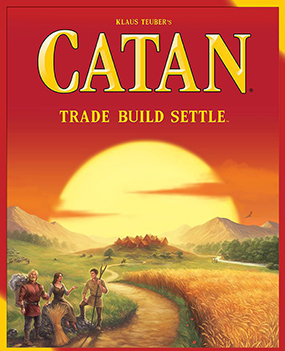Mannahnin
Scion of Murgen (He/Him)
Early to mid 2000s, I think. Settlers of Catan being the standard bearer.Board games, I think, were still very much considered the province of kids and families at the time. It wasn't until -- what, the early 90s? -- that "Eurogames" got a real foothold?
After Settlers was first released in 1995, a small but passionate following emerged. It wasn't until a decade later that the game's popularity began to blossom. "The start of the tipping point was 2008," said Bob Carty, a spokesman for Settlers manufacturer Mayfair Games. "Settlers is three to five years away from being a household word." Last year alone, the game's sales grew 35 percent. Carty said that the game is mainly played by families, but it's also popular on college campuses and as a team-bonding activity at companies.
This article is from 2011. 2008 was also the first year that the Catan World Championships (started in Essen, in 2002) were held in the US, at Gen-Con Indy. Starting then, the event has been every two years, alternating between the US and Germany until the pandemic put it on hold.
Settlers of Catan: How a German Board Game Went Mainstream
Two decades after it was invented, this game is about to become a household name. How did it happen?

Catan - Wikipedia
 en.wikipedia.org
en.wikipedia.org


